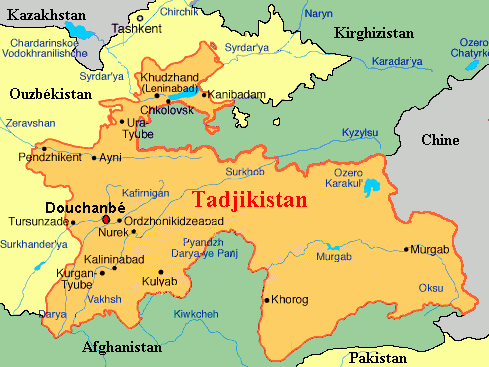Few were surprised that acting head of the state President Emomali Rahmon won the Tajikistan presidential elections with 83.6 percent of the votes. Experts believe that the courses taken by Emomali Rahmon in the last ten years will continue. This means that the coming years will be very difficult for both the president and his country.
A complete economic collapse in Tajikistan and instability in the neighboring Afghanistan, which the U.S. military will partially vacate next year, may lead to internal disturbances in the republic. To keep the situation under control Rahmon is trying to follow a multi-vector foreign policy, relying, in extreme cases, for outside help.
Relations with Russia are of a dual nature, although it is believed that Tajikistan is one of the main allies in the region. The republic accommodates the 201st Russian military base, which will remain there until 2042 according to the agreement. However, the ratification of the relevant treaty was delayed by the parliament, controlled by Rahmon for a whole year. All this time, Tajikistan extracted various concessions out of Russia.
The Ayni conondrum
Rahmon promised to rent out the Ayni military airfield near the Tajik capital to India, Russia and the US. All three countries are interested in obtaining the lease of the site. However, the president’s "multi-vector" policy complicated the situation so much that now the potential tenants are unclear about the status of the base.
India spent a significant amount of money over the last decade developing Ayni, hoping that it would be a major base for the strategically important region. New Delhi is very serious on the Ayni air base project to gain a strategic foothold in Central Asia and improve its C3I (Command, Control, Communications and Intelligence) network to fortify its operations in Afghanistan and keep a close eye on Pakistan. India has however met with Russian resistance as Moscow has been unrelenting in its stand that it doesn’t want foreign powers to deploy fighter aircraft in its backyard and a former territory.
Ayni Air Force Base, also known as Gissar Air Base, is a military air base in Tajikistan, just 10 km west of the capital Dushanbe, which served as a major military base of the Soviet Union in the Cold War era.
The situation with Ayni shows that Tajikistan is not really in position to sign a consistent and binding agreement and that Dushanbe may be left with nothing. “Rahmon will seek preferences in the supply of arms in lieu of renting out the base,” says Azhdar Kurtov, an expert of the Russian Institute of Strategic Studies.
Dushanbe’s bargaining chips
In exchange for the ratification of the agreement on the 201st Russian military base, Moscow promised to expand a free education program in Russian military academies for citizens of Tajikistan and to provide $200 million worth of arms to the republic. In addition, Moscow has modified work permit laws for citizens of Tajikistan, allowing them to work in Russia for up to 3 years. This is relevant for Dushanbe - according to the Russian Federal Migration Service there are more than 1.2 million citizens of Tajikistan in Russia, who this year alone remitted $3.5 billion to their home country.
However, even such a dangerous dependence on Moscow does not discourage Dushanbe from demonstrating its activity in relation to other countries. For example, until recently it seemed that the US was paying considerable attention to Tajikistan. For a while, the United States and NATO were sizing the option to withdraw troops from Afghanistan via Tajikistan, but Pakistan’s conditions regarding this issue were far more suitable for the West.
Related:
Russia to modernise Tajikistan’s army
Russian and Tajikistani Presidents to discuss law enforcement cooperation
1,900 gangs smuggling Afghan drugs to Russia – anti-narcotics agency
Such behaviour periodically makes experts say that Tajikistan is slipping away from Russia’s influence to China, India, Iran, or even the United States. Elena Kuzmina, Manager of the Sector for Economic Development at the Institute of the economy of post-Soviet states recognizes that in the past two years, in fact, it was China that has become a major trading partner and investor in Tajikistan. Russia is only in the second place. Chinese investment accounted for 40 percent of total investments in the Tajik economy. In addition, China provides grants for the construction of infrastructure projects. With the support of the Celestial Empire, Tajikistan was able to implement large-scale projects in the energy and communication sectors.
“It would still be improper to say that Tajikistan is moving away from Russia,” says Kuzmina. There is cooperation between Moscow and Dushanbe in many areas. According to Kuzmina, it would be more accurate to say that Tajikistan has expanded the scope of its economic interests, and will continue to try to expand and diversify its cooperation with various countries.
Azhdar Kurtov also believes that there will be no sharp geopolitical fluctuations, not to mention a change of Dushanbe’s main external partner. “The republic has no oil or gas and because of the high-altitude terrain, production of other resources is more expensive. Its geographical location does not allow the deployment of a large-scale construction, including, for example, transport communications, which Tajikistan has pinned high hopes on. Attempts to refocus on Iran by creating a union of three Persian-speaking countries (Tajikistan, Iran and Afghanistan), were not successful, “Kurtov said.








 del.icio.us
del.icio.us
 Digg
Digg
Les commentaires sont fermés.